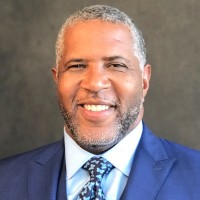Key Takeaways:
- Even though there are more than 100 HBCUs in the U.S., only six have law schools.
- HBCU law schools train their students to recognize the challenges faced by underrepresented communities to help them become advocates for social justice.
- Some HBCUs that include law schools are Florida A&M University, Howard University and Southern University.
While there are hundreds of law schools across the U.S., only six are historically Black law schools. In fact, the majority of Historically Black Colleges and Universities (HBCU) law schools were created in the last 60 years. They were originally established to provide Black Americans with a nurturing environment to study law.
In the last few decades, these schools have developed a reputation for academic excellence and social justice advocacy. Today, these schools help shape a diverse population of students into fighters for civil rights and social progress. Ahead, we will discuss each HBCU law school and the value of attending one.
The Six HBCU Law Schools Add Your Heading Text Here
The six HBCU law schools have played, and continue to play, a critical role in providing higher educational opportunities to all students, especially those from underrepresented communities. Most of these schools are located in the South and Southwest regions of the U.S., and each has its own unique history. Below is a list of the six HBCU law schools in the U.S.
1. Florida A&M University College of Law
The College of Law at Florida A&M University (FAMU) has a rich history that dates back to 1949. The school’s first class was established shortly after its founding in 1951. Fifteen years later, the Florida Board of Control (now known as the Board of Regents) prevented the school from admitting law students. Its last class graduated two years after that, and the school shut down. In 2000, the Florida Legislature passed legislation to re-open the law school.
The mission of FAMU’s College of Law is to provide its students with an excellent educational experience. The school also strives to train its students to help others from underrepresented and underserved communities. According to school data from 2022, the average class size at Florida A&M College of Law is about 130 students.
2. Howard University School of Law
Located in Washington, D.C., Howard University School of Law was founded in 1867. By the end of the law school’s first year, its class increased from six students to 28. The school’s law degree first required two years of classes, but a three-year program was established by 1900.
Since its inception, Howard University School of Law has helped develop some of the best lawyers in the U.S. The first Black American female lawyer, Charlotte E. Ray, graduated from Howard and went on to be the first woman to practice law before the Supreme Court in D.C. Another notable Howard graduate is Thurgood Marshall, the first Black American U.S. Supreme Court Justice.


Get Industry leading insights from Robert F. Smith directly in your LinkedIn feed.
Get Industry leading insights from Robert F. Smith directly in your LinkedIn feed.
3. North Carolina Central University School of Law
The North Carolina General Assembly created North Carolina Central University (NCCU) School of Law in 1939. The school was established to give Black Americans an opportunity to receive an in-state law school education.
Today, NCCU School of Law aims to train attorneys to lead and serve their communities. On average, the law school has about 159 students per class, with most students coming from the Southeast region of the U.S.
4. Southern University Law Center
Southern University Law Center, located in Baton Rouge, LA, opened in 1947. The school was established in response to a lawsuit initiated by a Black American looking to attend law school at an in-state institution. The Louisiana State Board of Education responded by creating a Black law school at Southern University.
Today, the Law Center has one of the most diverse student populations in the U.S. and more than 2,500 graduates.
The Law Center also has several notable alumni, including the famous civil rights attorney Jesse N. Stone Jr. The Law Center’s class of 1950 graduated equal rights lawyers Fredrick Dyson and Alex Louis Pitcher.
5. Thurgood Marshall School of Law at Texas Southern University
The Thurgood Marshall School of Law at Texas Southern University was founded in 1946. Similar to the Southern University Law Center, the Thurgood Marshall School of Law was created as a result of a lawsuit. When mail carrier Heman Marion Sweatt applied for law school at the University of Texas, he was denied admission because of his race. He later filed a lawsuit with the NAACP, which pushed the Texas State Legislature to pass a bill that led to the creation of the Thurgood Marshall School of Law.
Today, the school aims to educate a diverse group of students to become leaders in law, business and politics. Currently, the average class size of the Thurgood Marshall School of Law is about 190 students.
6. The University of the District of Columbia David A. Clarke School of Law
The University of the District of Columbia David A. Clarke School of Law was created in 1996 when the Antioch School of Law and the District of Columbia School of Law merged. The school honors the legacy of former D.C. Council Chair David A. Clarke. Clarke was a passionate civil rights advocate and supporter of the school’s mission to foster diversity and promote public service.
Philanthropy is a fundamental element of the School of Law’s mission. The institution’s students and employees dedicate 100,000 collective hours of free legal services to their community annually. This generous activity satisfies part of the school’s requirement for hands-on practical training.
The Value of Attending HBCU Law Schools
HBCU law schools offer a variety of different benefits to students. One advantage is that tuition is often lower at HBCU law schools than at non-HBCU law schools. This makes a top-tier legal education much more accessible to students from underrepresented and underserved communities.
Given their reputation for diversity, HBCU law schools also offer a nurturing learning environment to students from underrepresented communities. Because of the legacies of HBCU law schools, students are able to gain a deeper understanding of the challenges faced by underrepresented communities and are better equipped to become advocates for social justice.
Follow Robert F. Smith on LinkedIn to learn more about HBCU law schools and similar topics.






